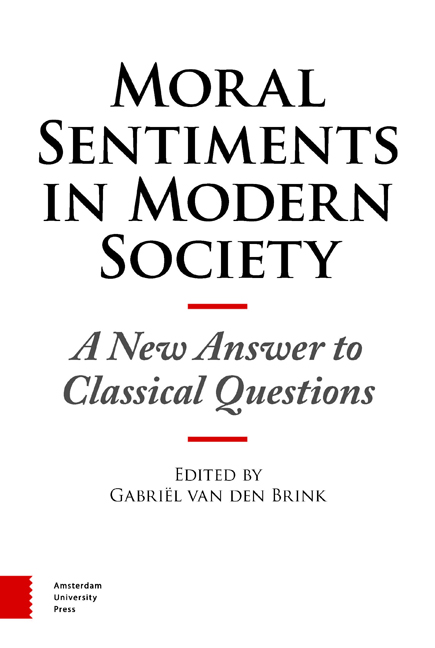Book contents
9 - Signs of Moral Resilience
Published online by Cambridge University Press: 02 February 2021
Summary
Preceding chapters explored different facets of the complex relationship between morality and modernity. Chapters 3 and 4 revealed that certain features of the modern way of life have a negative impact insofar as they discourage the tendency towards moral behaviour. This is particularly evident in the public domain. Likewise, we saw that sometimes it works differently in that modernisation does not result in the elimination but rather the alteration of moral commitments. Chapters 5 and 6 illustrated that this applies in particular to citizens’ lifestyles. Finally, we also discovered that, in certain areas, moral sensitivity is actually growing stronger, a tendency that was illustrated in chapters 7 and 8 with regard to professional life. In the present chapter we discuss a final possibility, namely that modern existence does not have any impact on the moral values of citizens. It may even be that those values are used to compensate for or to counteract certain drawbacks of modernisation.
The best known example of such compensation is the welfare state that developed in various European countries after the Second World War. The welfare state is an arrangement that fulfils many economic, social and political functions while also having moral implications. Its purpose is, after all, to protect people from the adverse effects of illness, old age, unemployment and other risks inherent in the functioning of a market economy. Its costs are largely borne by corporations and the citizens themselves, and the welfare state can therefore be regarded as an organised form of solidarity. It is questionable whether such an arrangement can survive without any kind of moral commitment. There are, however, two reasons why we will sidestep questions about the welfare state in this chapter. First, this book is not concerned with the state, politics or government but rather modern society. Second, the currently existing form of the welfare state is undergoing a radical transformation of which the outcome is anything but clear. We therefore focus on several forms of moral commitment that seem to be immune to modern dynamics or that, in fact, provide evidence of moral resilience.
This commitment can take many forms. We begin by asking whether and to what extent religious traditions provide a certain counterweight to modern life (section 1).
- Type
- Chapter
- Information
- Moral Sentiments in Modern SocietyA New Answer to Classical Questions, pp. 291 - 318Publisher: Amsterdam University PressPrint publication year: 2016

